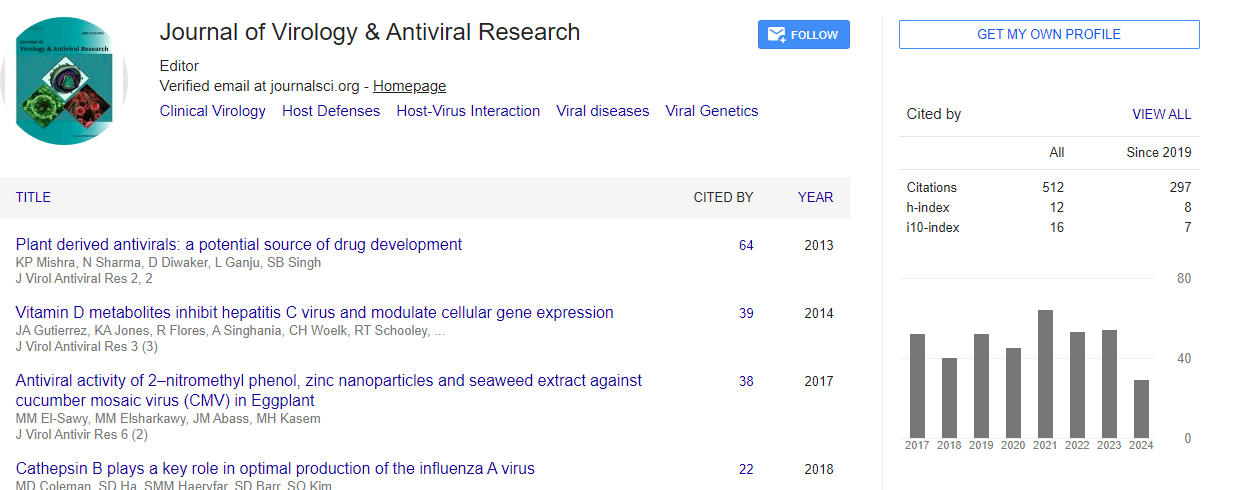Challenges for induction of broadly neutralizing antibodies against HIV-1
Feng Gao
Duke University, USA
: J Virol Antivir Res
Abstract
Broadly neutralizing antibodies (bnAbs) may be key for an effective HIV-1 vaccine. Although bnAbs can be detected in a small percentage of HIV-1-infected individuals, they have not been successfully elicited by vaccines. Germline ancestors of bnAbs generally do not neutralize HIV-1, but they can gradually gain potency and breadth for neutralization of heterologous HIV-1 strains when they become more mature through accumulation of high levels of somatic mutations after a few years of infection. Since bnAbs develop in the absence of diverse heterologous HIV- 1 variants in an infected individual, one plausible hypothesis is that broad neutralization of diverse heterologous viruses is a byproduct of the antibody maturation process. This hypothesis is supported by observations that bnAbs continuously evolve to gain neutralization breadth and potency, even after all autologous plasma viruses become resistant to bnAbs in infected individuals. Importantly, the viral loads in individuals with bnAbs were generally similar to or higher those individuals without bnAbs. Thus, people with bnAbs do not benefit from the development of bnAbs because autologous viruses have completely escaped from these bnAbs. This theory may have significant implications in AIDS vaccine development.
Biography
Feng Gao is a professor at Duke University in the USA and at Jilin University in China. Dr. Gao has a long-standing interest in elucidating the origin, evolution and genetic variation of human and simian immunodeficiency viruses (HIV/SIV), as well as in studying gene function, pathogenesis and vaccines of HIV/SIV from the evolutionary perspective. He discovered that HIV-1 was originated from chimpanzees and his work also provided the genetic evidence of the origin of HIV-2 from sooty mangabey monkeys. He developed the consensus gene vaccine approach for induction of cross-subtype immune responses by reducing the distances between epidemic HIV-1 strains and vaccine immunogens. He recently studied the coevolution of broadly neutralizing antibodies (bnAb) and HIV-1 in the same infected host and discovered a cooperative mechanism between different bnAbs to drive maturation of a bnAb lineage. He currently studies bnAb maturation mechanisms in humans and non-human primates, impacts of immune escape mutations on fitness of their cognate transmitted/founder viruses, development of autoreactivity and polyreactivity during bnAb maturation, and roles of maternal neutralizing antibodies in mother-to-child transmission of HIV-1.
Email: feng.gao@duke.edu
 Spanish
Spanish  Chinese
Chinese  Russian
Russian  German
German  French
French  Japanese
Japanese  Portuguese
Portuguese  Hindi
Hindi 

